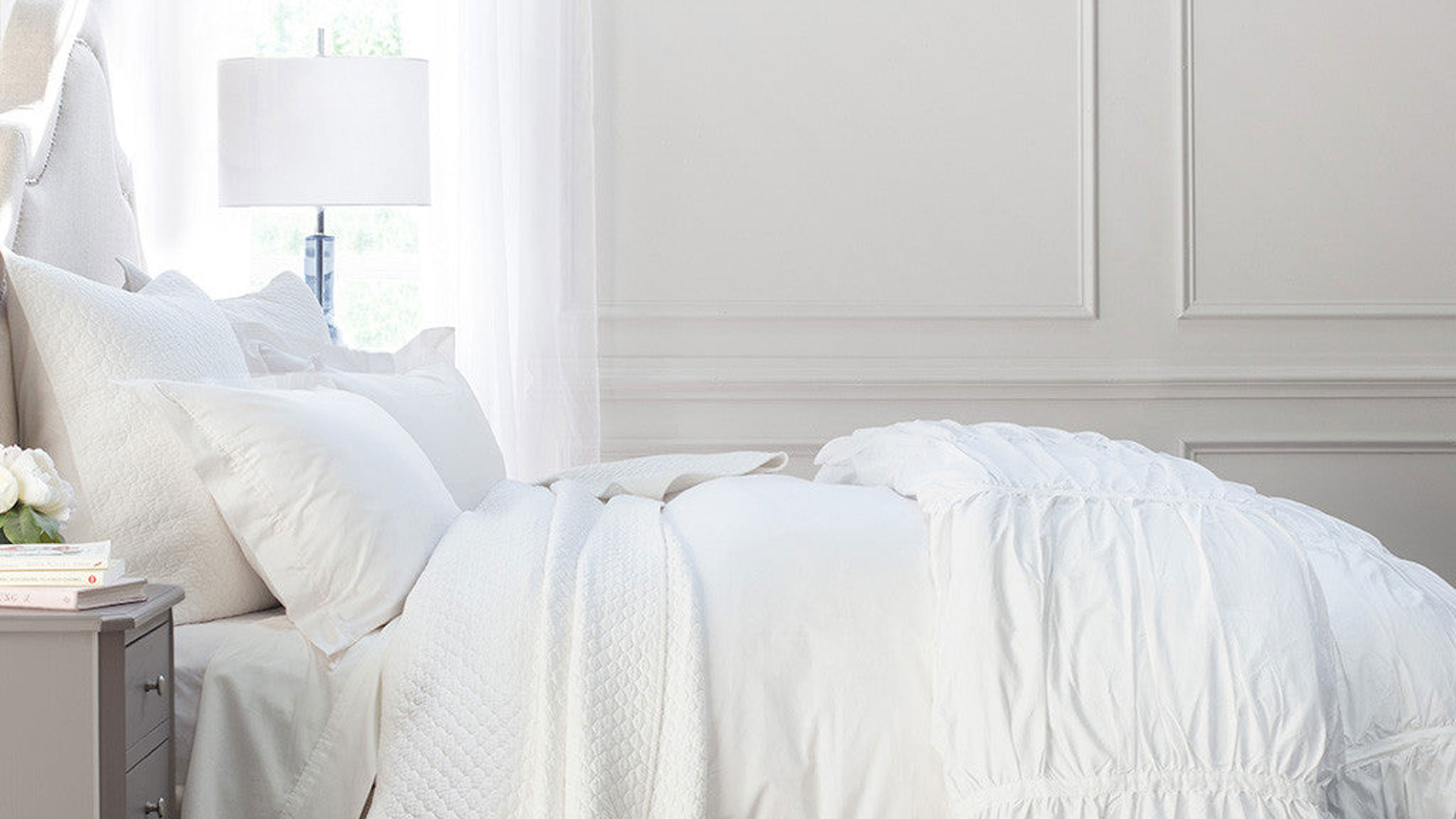
It's been rooted into many of us since we were children that we should learn how to make a bed properly and to do so pretty much soon as we get up.
Years on, in adulthood, life coaches, sleep and well-being experts often advocate the grounding benefits of this daily ritual – claiming this fairly simple act can give you an instant sense of order and control, positively impacting on your entire day, productivity and quality of life.
However, there are some mixed opinions on whether this is strictly the best routine after all, or not. Some sleep experts have even stated that making the bed every morning could be doing you more harm than good – claiming it isn't as hygienic as an unmade, aired and, albeit, disheveled bed – as the former could harbor more bacteria, potentially damaging your mattress in the process.
Hannah Shore, Silentnight's Sleep Expert says, 'One of the key factors to be considered when creating a calming sleep environment is a tidy bed and bedroom space. However, there are many theories stating that making the bed first thing each morning can allow for bacteria to spread under the covers.'
So when you want to keep your health, well-being and bed intact, which is the better route to take? We asked the experts.
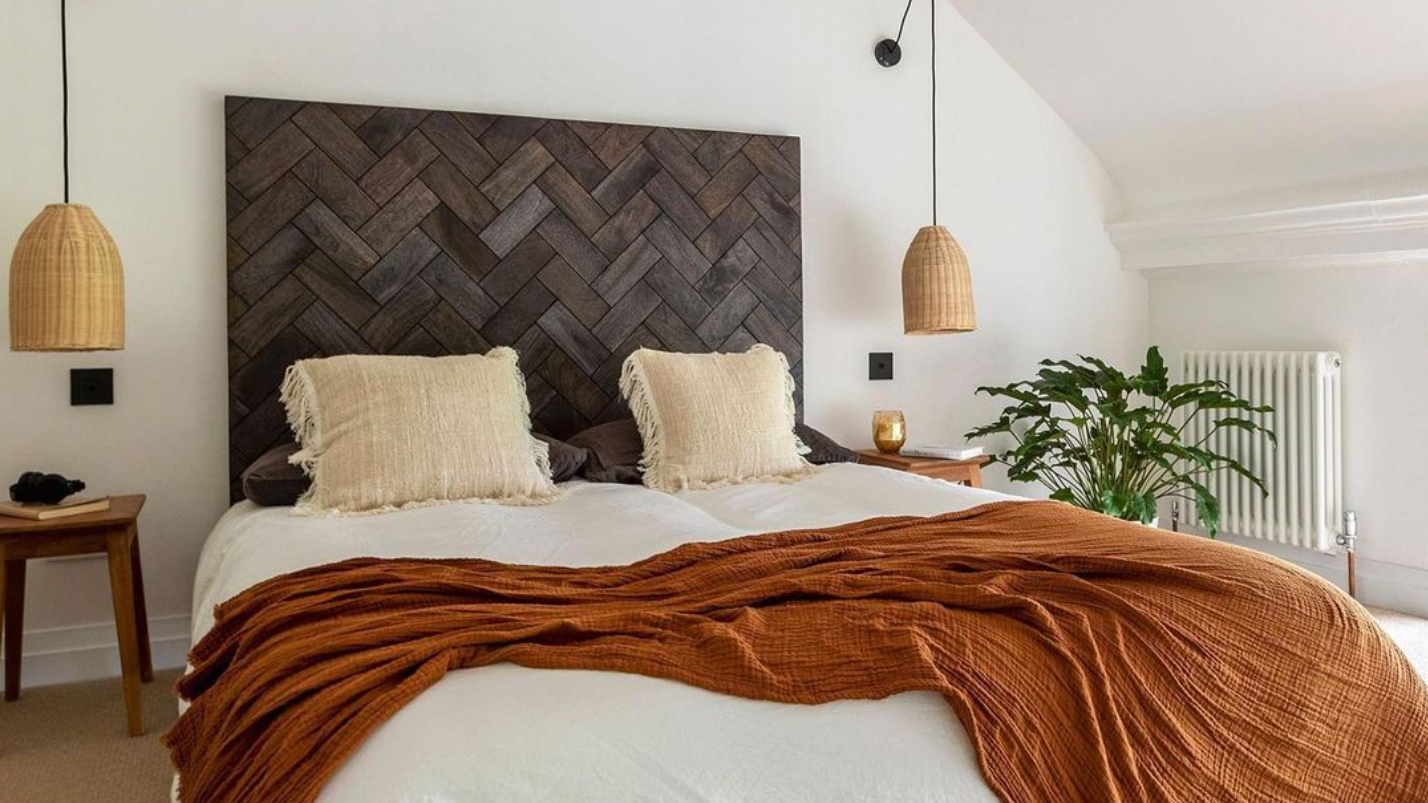
Why shouldn't you make the bed everyday?
According to The Sleep Council the average adult loses 285ml of fluid each night, perhaps more so in the summertime with higher temperatures. Meaning there's a chance of trapping in all of that moisture when you make your bed.
Doing this every morning could mean this festers during the day, leaving you with less than fresh sheets to sleep on in the evening.
Join our newsletter
Get small space home decor ideas, celeb inspiration, DIY tips and more, straight to your inbox!
Martin Gill, MD of the luxury mattress and bed retailer, And So To Bed backs this, saying: 'During the higher temperatures we will sweat more as our bodies try to cool us down. This sweat wicks away from the body and is absorbed into the linen and, if you are without a mattress protector, into the mattress as well.
'When we make our bed the next morning we are preventing that moisture from evaporating, meaning it has nowhere else to go and remains within the mattress and bedding, which can lead to bacteria build up and damage.'
Robin Wilson, founder of the CLEAN DESIGN HOME® brand says, 'I do not recommend fully making your bed when you first wake up, as it is better to turn down the sheets to let them air out for at least an hour.'
Wilson’s statement is supported by a 2006 study – according to a 2006 study published in the journal Experimental and Applied Acarology: leaving your bed unmade during the day gives your sheets the chance to breathe, resulting in fewer dust mites. Since we generate more body heat and sweat at night, if you practice getting up, doing your morning routine (exercise, shower, breakfast), and then making your bed before you leave home, you might breathe easier at night.'
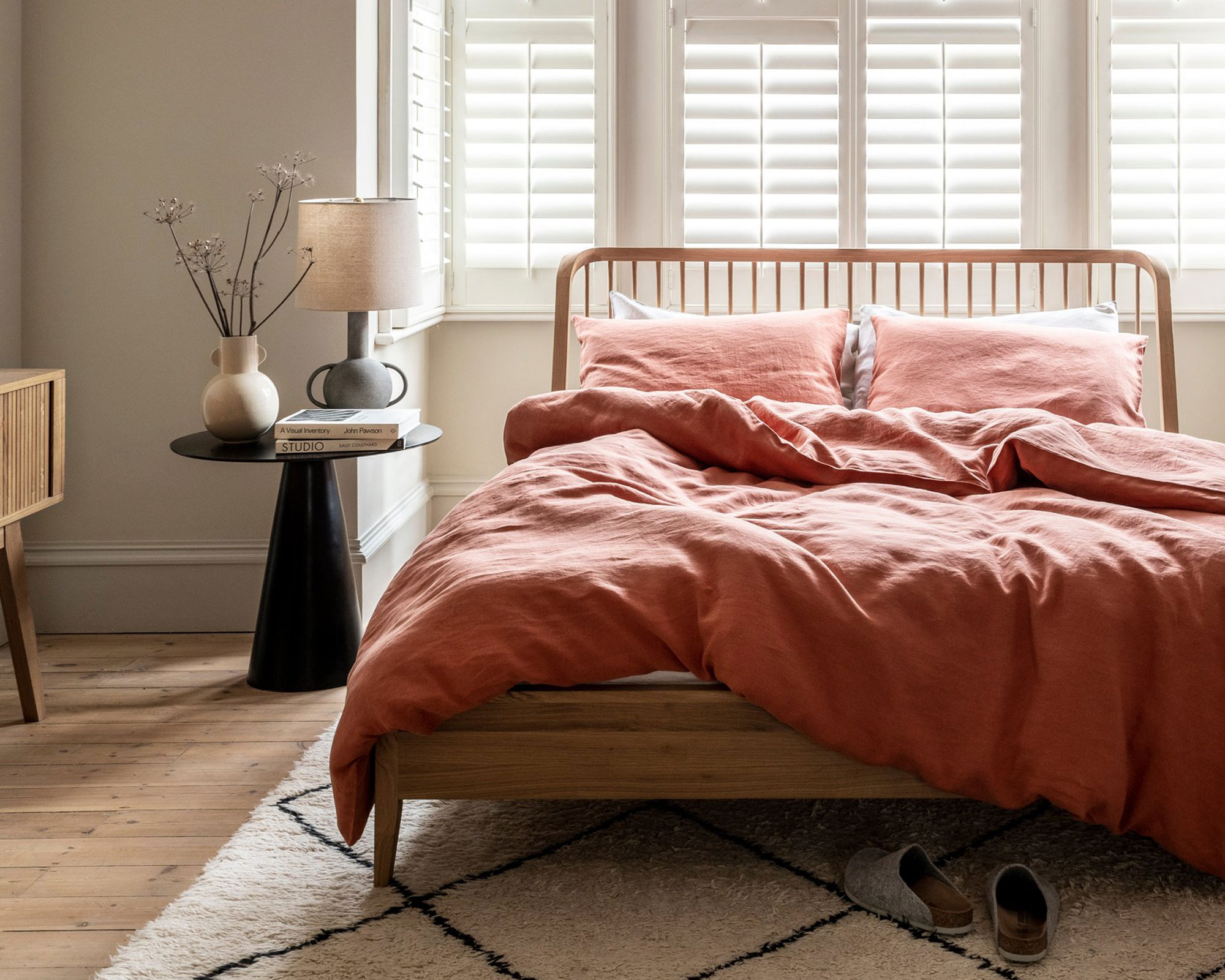
Is it healthier to not make your bed?
Gill says, 'It is recommended, for hygiene and mattress longevity, that instead of making your bed every morning, you strip it back instead. Open your bedroom windows and allow your mattress to breathe.'
Shore backs this method also, 'When making the bed each morning, instead of pulling the duvet all the way up the bed to the pillows, simply fold the duvet back to allow air to circulate and let the bedding air off. Throughout the night, we apply heat and moisture directly to the bed as we sleep, so by allowing the bed to air, it creates a more hygienic sleeping environment.'
However, Karin Sun, Founder of luxury bedding company Crane & Canopy stresses that you should still make your bed every day once this process is done, saying: 'While making your bed every morning might seem like a chore, this simple habit can begin your days on a positive note, and a healthier one... Surveys have even shown that bedmakers are happier and more successful at home and work, feel more rested, and are more engaged in a healthy lifestyle than their rumpled-sheet peers.'
Wilson adds, 'You start your day with your first accomplishment: making your bed (after you let it air out!) and then you return home, you will have a made bed. The most important thing is to prevent and protect your bed from allergens with the Rule of 3’s created by Robin Wilson – which means that you have 3 layers of bed protection: the mattress protector, then the mattress pad and then the fitted sheet, which ensures that over time, your dead skin cells and dust mite accumulation are within the mattress and less near your skin.'
The verdict: should you make your bed every day?
A quick poll of some of the Real Homes team reveals that while we all make the bed daily, most of us are pro bed airing for a couple of hours before making the bed up, every morning.
Deputy editor of Real Homes magazine Ellen Finch says, 'I used to make my bed first thing in the morning because I don't feel like I've started my day without doing so, but after hearing whispers about bacteria festering, I now leave the bedding to air for an hour or two first.'
Assistant editor Alison Jones agrees. 'My mum and my nan always said to let the bed air when you get out of it, so I've always done what I was taught.'
It's evident that whether you make the bed every morning or not is more of a personal choice but perhaps the healthiest approach is to let your bed air for an hour or two – perhaps more so during the summer months – before making it up completely. Then of course, cleaning your mattress and bedding regularly is a must to get rid of any bacteria build-up which is inevitable.
Gill also notes how mattress flipping is important if yours needs it: 'It is also important to remember to flip or rotate your mattress as per the manufacturer’s instructions.'
So do eventually think about making your bed, just ensure your sheets and mattress have had enough air time – especially after a warm night – to maintain a healthy and tranquil sleeping environment.

I'm Cam, the former deputy editor of Real Homes who worked on the site from 2020 to 2023. As a renter myself, sharing a home with two friends (and my cat) in London, I know all too well the challenges that this can pose when it comes to creating your perfect setup. As someone who has always loved everything interior design-related, I cannot rest until a home feels right and I am really passionate about helping others get there too, no matter what their living situation, style, or budget may be. It’s not always the easiest to figure out, but the journey is fun and the results are so worth it.
After interior design, travel, art, and photography are my next big passions. When I’m not writing or editing homes content, I’m usually tapping into other creative outlets, exploring galleries in London or further afield, taking photos, scribbling, or drawing!
-
 Experts reveal 8 weighted blanket benefits including reduced anxiety, insomnia and boosted serotonin
Experts reveal 8 weighted blanket benefits including reduced anxiety, insomnia and boosted serotoninDiscover weighted blanket benefits such as reduced anxiety, increased focus, reduced movement in the night and better focus in the day
By Heather Bien Published
-
 3 items for better sleep — I'm a homes editor and here's what I'm shopping in celebration of World Sleep Day
3 items for better sleep — I'm a homes editor and here's what I'm shopping in celebration of World Sleep DayI'm a homes editor eyeing these three items for better sleep in celebration of World Sleep Day
By Danielle Valente Published
-

 The TEMPUR-Adapt mattress topper is a dreamy combo of cushion and support
The TEMPUR-Adapt mattress topper is a dreamy combo of cushion and supportOur contributing editor reviews the TEMPUR-Adapt mattress topper for two weeks in her home
By Paige Cerulli Published
-
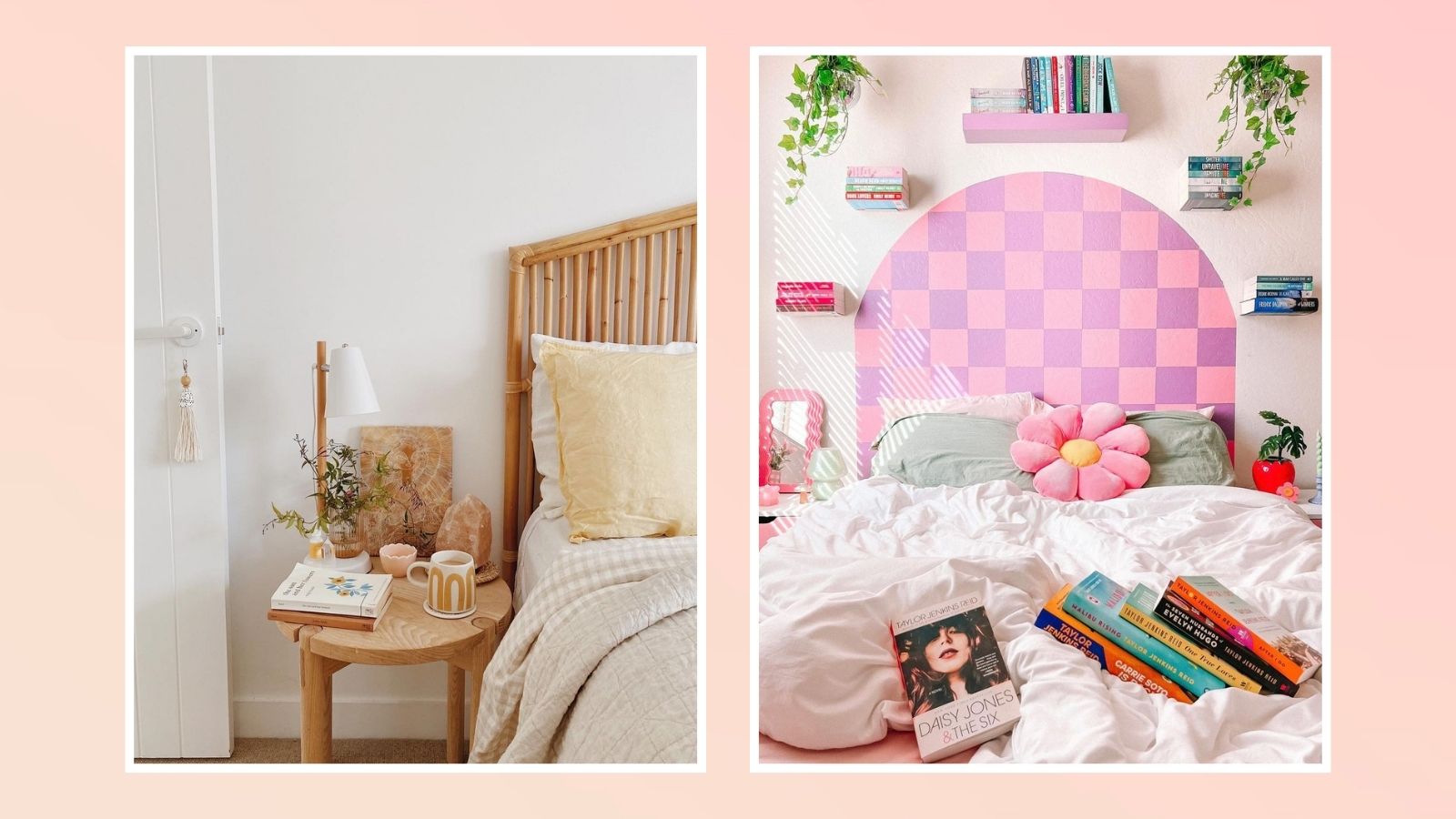 What is the happiest color for a small bedroom? Here's what experts recommend for a dopamine boost
What is the happiest color for a small bedroom? Here's what experts recommend for a dopamine boostWhat is the happiest color for a small bedroom? Paint experts from Benjamin Moore and Sherwin-Williams spill
By Danielle Valente Published
-
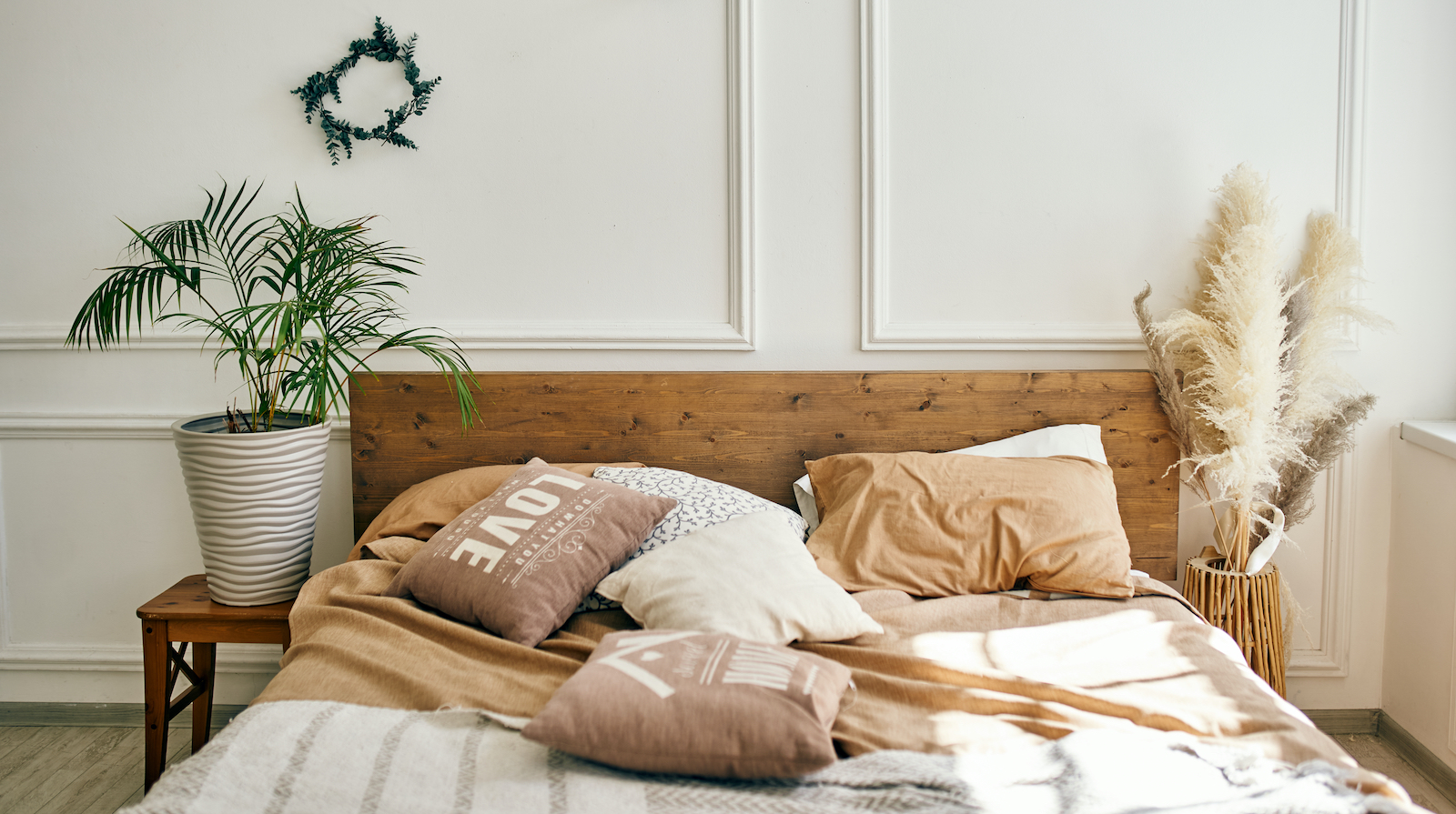 How to make a small bedroom cozy — designers reveal their non-negotiable rules
How to make a small bedroom cozy — designers reveal their non-negotiable rulesOur edit of how to make a small bedroom cozy features designer-backed tips and items to help achieve the look
By Danielle Valente Published
-
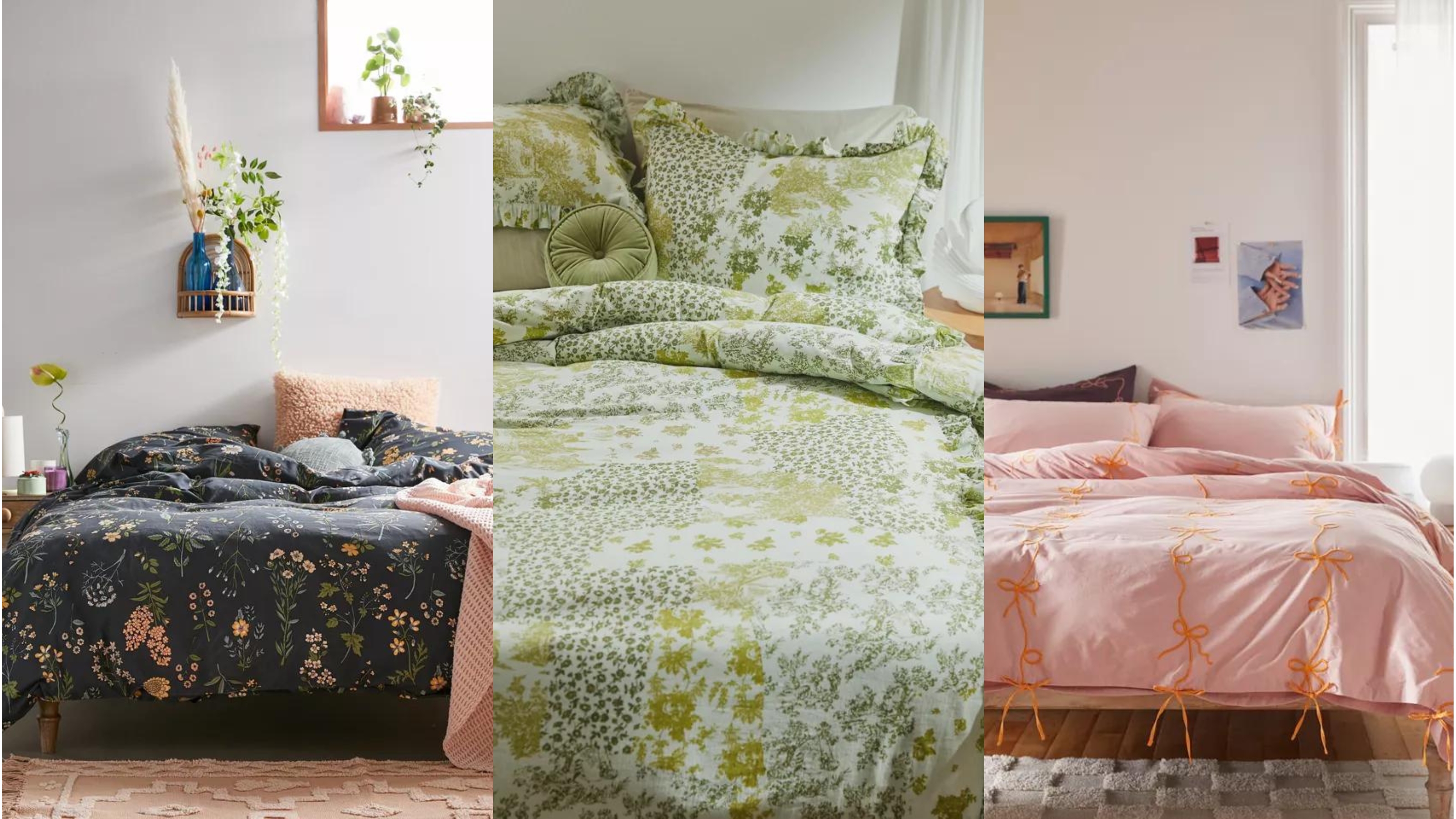 Out of 70+ options, these Urban Outfitters duvet covers are the best for comfort and style
Out of 70+ options, these Urban Outfitters duvet covers are the best for comfort and styleShop these Urban Outfitters duvet covers as rated and reviewed by real customers. Includes twin, twin XL, full, queen, and king sizes in a variety of colors and materials.
By Lauren Bradbury Published
-

 Zinus ultra cool gel mattress topper review
Zinus ultra cool gel mattress topper reviewOur freelance contributor Camryn Rabideau shares her thoughts on the Zinus Ultra Cool Gel Memory Foam Mattress Topper after four weeks of sleeping on this temperature-reducing bedding accessory.
By Camryn Rabideau Published
-
 These dreamy Dormify bedding buys will make your dorm room cozy and cute
These dreamy Dormify bedding buys will make your dorm room cozy and cuteFrom comforters to sheets, we've picked nine Dormify bedding buys that will make your new room feel comfy and inviting...
By Eve Smallman Published
